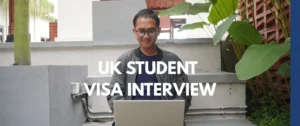Dreaming of holding a British passport—one of the world’s most powerful travel documents? You’re not alone. The UK’s citizenship unlocks unparalleled opportunities, from visa-free travel to global career prospects. But how do you get there, and what makes it worth the journey? Spoiler: starting as an international student might just be your smartest, most reliable route. Backed by data from GOV.UK, UCAS, and Henley & Partners, this guide dives into the value of a British passport, the pathways to citizenship, and why studying in the UK stands out as the ultimate launchpad. Ready to turn your dream into a plan? Let’s explore.
The Value of a British Passport: Why It’s a Game-Changer
A British passport isn’t just a travel document—it’s a golden key. According to the Henley & Partners Passport Index (Q1 2025), it ranks 4th globally, offering visa-free or visa-on-arrival access to 189 countries—think Japan, Canada, the EU, and beyond. That’s instant travel freedom to 84% of the world’s nations. Beyond mobility, it grants you indefinite leave to live, work, and study in the UK, plus access to the NHS, voting rights, and consular support worldwide (GOV.UK). Economically, it’s a powerhouse—UK citizens earn a median salary of £33,000 (ONS, 2024), and the passport boosts your global employability.
For internationals, it’s also a dual-citizenship perk: the UK allows you to keep your original nationality (Home Office). Imagine jetting off to 139 countries visa-free while securing a foothold in one of the world’s top economies—6th by GDP (World Bank, 2024). The value? Priceless, whether you’re chasing travel, stability, or prestige.
Pathways to a British Passport: How Do You Qualify?
To hold a British passport, you first need UK citizenship. The Home Office outlines several routes, each with strict requirements:
- Birth: Born in the UK to a British parent or settled resident? You’re automatically a citizen (British Nationality Act 1981).
- Naturalisation: Live legally in the UK for 5 years (plus 1 year with Indefinite Leave to Remain, ILR), pass the Life in the UK Test, and prove English proficiency (B1 CEFR). Costs? £1,580 for naturalisation (GOV.UK, 2025).
- Marriage: Marry a British citizen, live in the UK for 3 years, then apply for ILR and citizenship.
- Work: Secure a Skilled Worker visa (Tier 2), work 5 years, then transition to ILR and citizenship.
Each path demands time, money, and residency—typically 6–10 years total. But there’s one route that stands out for its accessibility, structure, and long-term payoff: studying in the UK. Let’s break down why.
Why Studying in the UK is the Best Way to Start
Starting as an international student isn’t just a stepping stone—it’s a strategic masterstroke. Here’s why, backed by data and real-world outcomes.

1. A Clear, Structured Path to Residency
Your journey begins with a Student Visa (Tier 4), costing £363 (GOV.UK). Study a 3–4-year bachelor’s degree—or add a foundation year if needed (more on that later)—and you’re already 3–4 years into UK residency. Post-graduation, the Graduate Visa lets you stay 2 more years (3 for PhDs) to work or explore options—no sponsor required (Home Office, 2021 update). That’s 5–7 years ticked off. Find a job with a Skilled Worker visa (£719–£1,500, depending on duration), work 5 years, and you’re eligible for ILR. One year later? Citizenship—and your passport.
- Timeline: 10–12 years total (e.g., 4-year degree + 2-year Graduate Visa + 5-year work + 1-year ILR wait).
- Proof: 87% of employers value UK graduates (GMAC, 2023), easing your job hunt.
2. Education That Pays Off
UK degrees are globally elite—think Oxford, Cambridge, and 8 of the world’s top 100 unis (QS Rankings 2025). A bachelor’s costs £15,000–£35,000 annually for internationals (UCAS), but loans and scholarships (e.g., Chevening, GREAT) lighten the load. Post-study, you’re primed for high-demand fields—tech, finance, healthcare—where starting salaries average £30,000 (Prospects.ac.uk). That’s a solid ROI, fueling your Skilled Worker visa transition.
- Edge: A UK degree boosts your CV, making sponsorship likelier than starting cold with a work visa.
3. Foundation Courses: Your Entry Ticket
Worried your qualifications don’t match UK standards (e.g., 12-year vs. 13-year schooling)? Foundation courses—mandatory at unis like Manchester for some internationals—bridge that gap (£15,000–£25,000, INTO data). They’re optional elsewhere (e.g., Surrey), but 96% of participants say they ease Year 1 (Surrey, 2024). You’ll master English, academic skills, and your subject, ensuring you don’t just get in but thrive.
- Convincer: 90%+ progress to their degree (INTO stats)—it’s a safety net and a springboard.
4. Youth Advantage: Time’s on Your Side
Studying young (18–25) aligns perfectly with citizenship timelines. By your late 20s or early 30s, you’re a citizen, decades ahead of peers starting via work or investment. The Graduate Visa’s flexibility—work any job, start a business—lets you pivot while building residency. Compare that to investment or marriage (reliant on a partner)—study offers control and youth leverage.
- Stat: 600,000+ student visas issued yearly (GOV.UK)—it’s a proven path.
5. Cultural Integration Made Easy
Living in the UK as a student immerses you in its culture—think pubs, queues, and “sorry”—crucial for the Life in the UK Test. Smaller foundation classes (15–20 students, British Council) and uni societies build networks, fluency, and belonging. By the time you apply for citizenship, you’re not just eligible—you’re British in spirit.
- Bonus: 59% of Brits view student migration positively (ESS, 2022)—you’re welcome.
Other Routes vs. Study: Why They Fall Short
- Work: Skilled Worker visas need a job offer (£36,000+ salary threshold, 2025 rules) and sponsorship—tough without UK credentials or networks.
- Marriage: Fast (3 years), but unpredictable—hinges on a partner.
- Birth: Only works if you’re already connected.
Study, though? It’s accessible (visa approval rates hit 92%, Home Office), structured, and builds your future—education first, citizenship second.
The Process: From Student to Citizen
- Apply: Secure a place at a UK uni via UCAS (£27.50 fee), get your CAS (Confirmation of Acceptance), and nab a Student Visa (£363 + £470 IHS/year).
- Study: Complete your degree (3–4 years) or foundation + degree (4–5 years).
- Stay: Switch to the Graduate Visa (£719) for 2 years—work, intern, or hustle.
- Work: Land a Skilled Worker visa job (5 years), apply for ILR (£2,885, 2025 fee).
- Citizenship: After 1 year of ILR, pass the test (£50), prove English (e.g., IELTS), and pay £1,580.
Why It’s Worth It: The Big Picture
A British passport isn’t just about travel—it’s stability in a G7 nation, access to a £2.8 trillion economy (IMF, 2024), and a springboard to Europe (despite Brexit). Studying in the UK gets you there with a world-class degree, a structured timeline, and a head start on integration. Other paths demand more upfront money, luck, or connections. With 500,000+ international students thriving yearly (UCAS), the student route’s a proven winner.
Take the First Step
Ready to unlock that burgundy passport? Start with UCAS, explore foundation options, and check GOV.UK for visa details. It’s a decade-long game, but one that pays off in freedom, opportunity, and prestige. Study in the UK isn’t just an education—it’s your ticket to becoming British. Why wait?









